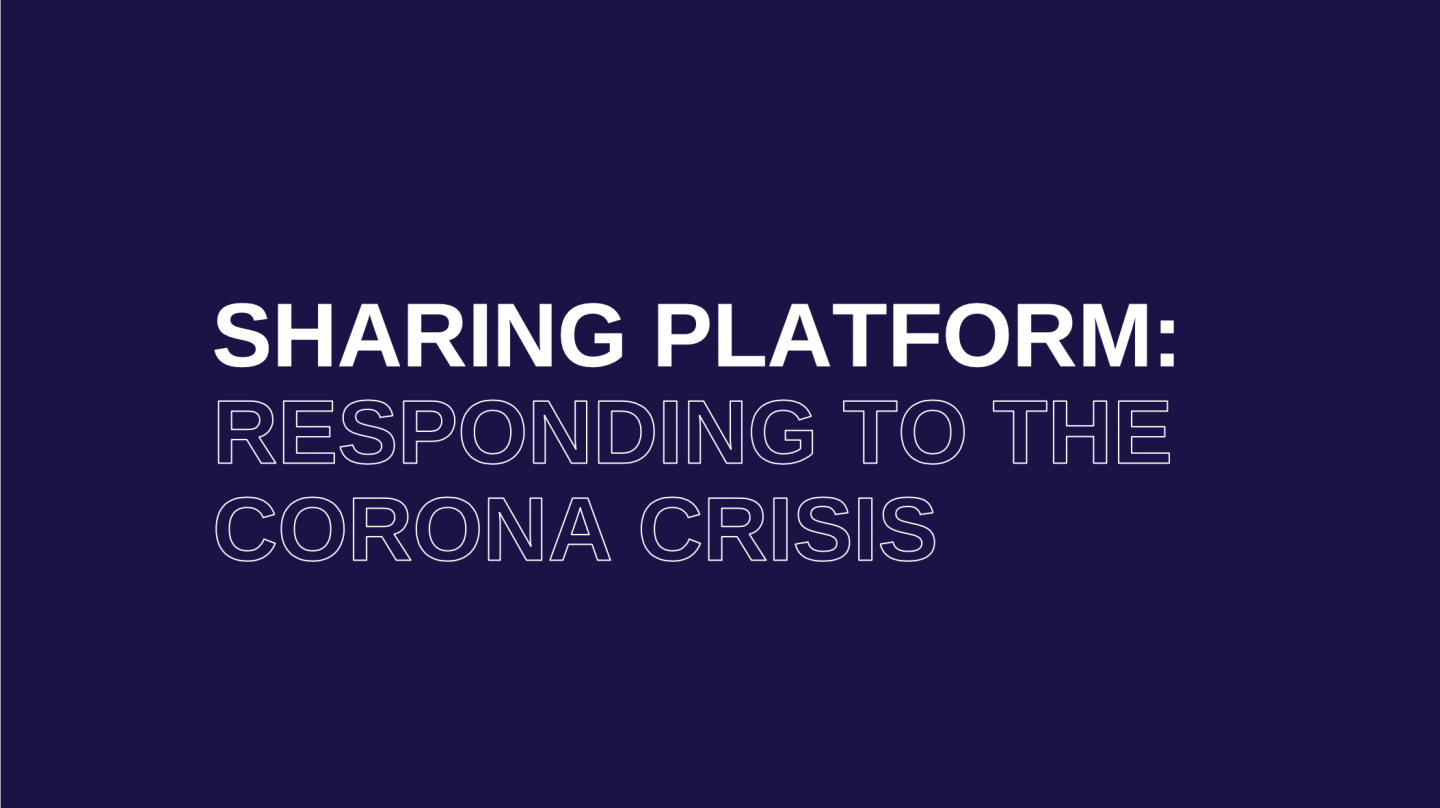
EUNIC Sharing Platform: Responding to the corona crisis
71 colleagues from EUNIC members and clusters worldwide shared experiences, discussed new ways of working online and looked ahead to post-pandemic strategies in a joint webinar.

The cultural and creative sector is one of the sectors heavily affected by the outbreak of the coronavirus and subsequent crisis. Throughout the world governments, institutions and networks have taken (emergency) measures to mitigate its effects.
The network’s response
EUNIC Global started the webinar which took place on 15 April 2020 with a brief overview of the effects of the crisis on the networkwide projects and activities:
- European ‘Houses’ of Culture: all pilot projects are facing obstacles in working or postponement of activities. EUNIC Global is in contact with the European Commission about possible effects on the overall project;
- EUNIC Cluster Fund: clusters which had planned activities for the first half of 2020 are currently unable to carry out activities with uncertainty when they will be able to restart.
- Crossroads For Culture: a number of regional seminars and Knowledge Sharing Workshops have been postponed and some of EUNIC’s activities will turn online.
On 19 March, just after the lockdown came into effect in most European countries, EUNIC Global launched a quick survey amongst its members on their government’s initiatives to mitigate the loss of income for artists and creative professionals and are sharing the results here. The information is constantly updated on our website. Global also presented (and continues to do so during the pandemic) some online cultural offerings from our members and clusters, on social media and collected on our website. Colleagues are invited to share any such information by writing to communications@eunicglobal.eu.
While colleagues expressed that crisis management is high on the priority list for all, some of our members have set up special funds to respond to the crisis in a creative way. The Finnish Cultural and Academic Institutes network has responded to the challenges of the crisis by announcing “Together Alone”, an open call to Finnish and Finland-based artists and artist groups for art projects. Malta Arts Council redirected funds towards its “Special Call” in order to invest in projects which address with immediacy and on a long-term basis, the cultural and creative sector impacted by this situation. Another way of facilitating continuation of artistic work is done by DutchCulture, reshaping its Mobility Info Point to the “COVID-19 Helpdesk” to answer all corona-related questions, with special attention to a number of priority countries.
A major concern in our cultural relations work that was raised, was whether our partners on the ground will survive this crisis. With many partners working in already fragile (financial) conditions, the current crisis and its long-term effects will surely impact the mere existence of EUNIC’s partners on the ground.
Turning online
Unsurprisingly, all members are turning digital in their daily work. All participants have resorted to using tools such as Microsoft Teams, Zoom or Skype (for Business) to organise internal information flows and communication with their partners. Some participants remarked that this could lead to a new standard of less travelling. All members have also entered the digital realm in their programming and offering of cultural activity. Even though this works for most, some concerns were discussed about the use of such platforms. Most members question the safety of online tools, as well as protection of participants’ data.
Other observations:
- Online tools do not always show a complete picture of your audience (in size or its characteristics).
TIP from member: “Data, also on length of participation, can be withdrawn from Google Analytics as well as WeChat and WhatsApp.”
- Overabundance and competition of online offering.
TIP from member: “Not all activities are suitable to transfer online: carefully consider if this is the case. Don’t panic if it does not suit.”
TIP from member: “Don’t come up with new platforms: use existing ones.”
- Possible generational gap that comes with online projects.
TIP from member: “Create some ‘classroom activities’ based on the cultural activities that you run/organise, so that teachers your institute could use them in their classes. This way you could potentially reach many people interested in both cultural and language offering.”
- Geo-blocking may hinder your online offering.
TIP from member: “Not a perfect or ‘sanctioned’ solution, but we did recommend using VPN for viewing this kind of content.”
Acting together
During the webinar it was observed that every country is responding to its own crisis and its own crisis alone, with a limited perspective on international collaboration. It was expressed that we as EUNIC should make a joint statement that international collaboration is crucial in times of international crisis.
Some ideas:
Joint EUNIC statement on the importance of international collaboration (possibly together with EU Institutions)
Writing a number of social media posts together telling about our work as EUNIC network – in general and now under the crises – for instance to be translated and published in local newspapers
Draft policy recommendations
Virtual public debate
More information
Read more about the initiatives and activities that were mentioned during the webinar:
- EUNIC overview of government measures: EUNIC website and Google Drive
- EUNIC collection of members’ online offerings
- Finnish Institute Call – selected projects
- Malta Arts Council Special Call
- DutchCulture’s COVID-19 Helpdesk (Dutch only)
